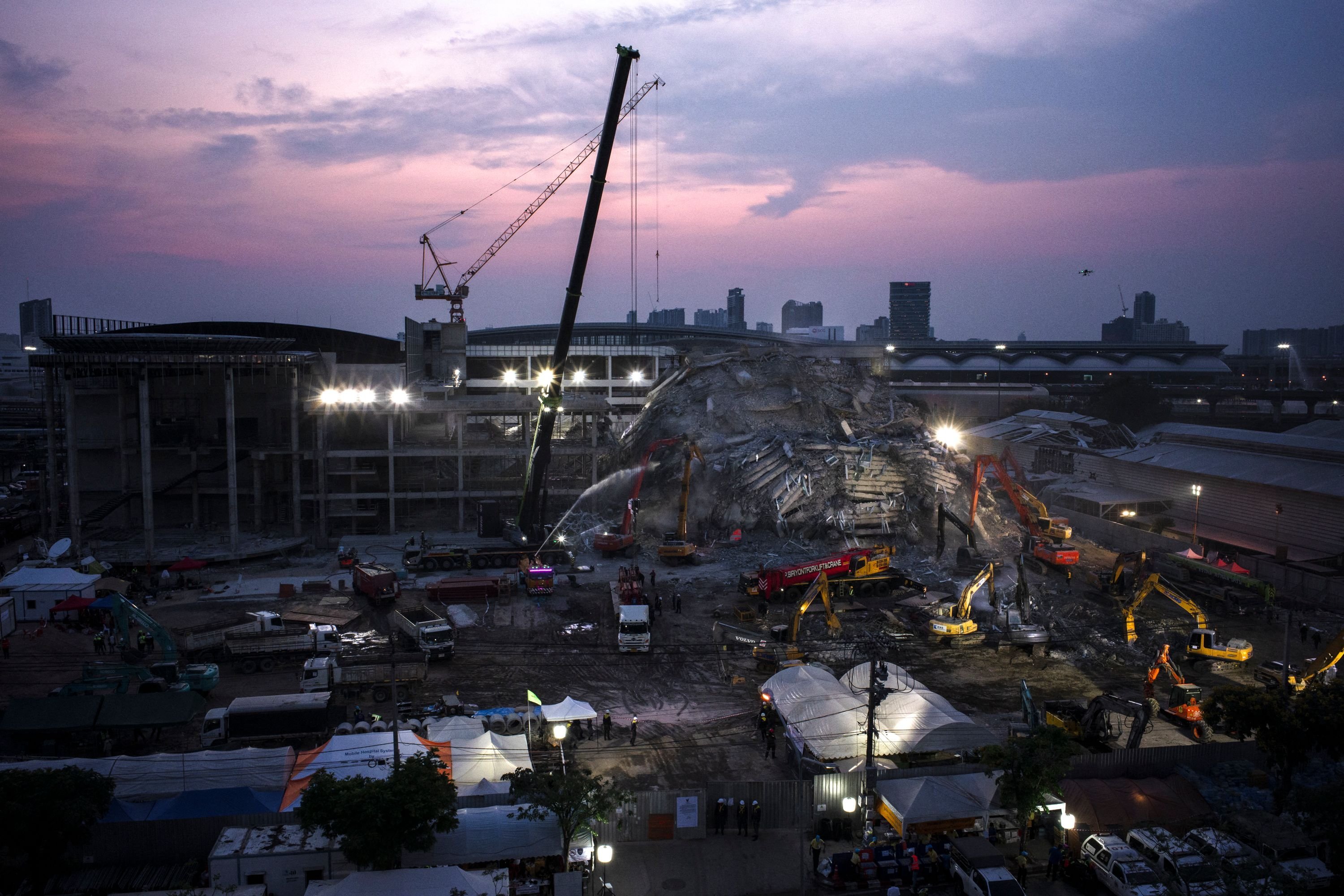© Turkuvaz Haberleşme ve Yayıncılık 2026
Myanmar's junta leader, Min Aung Hlaing, attended a regional summit in Bangkok on Friday, just a week after a devastating earthquake killed more than 3,100 people in the war-torn nation and prompted an urgent appeal for aid from the U.N. chief.
Shunned by most world leaders since his 2021 coup that toppled an elected government, Min Aung Hlaing seized the opportunity presented by the earthquake to bolster his diplomatic efforts, attending events like the BIMSTEC summit in the Thai capital.
During the summit, he held bilateral meetings with Thai Prime Minister Paetongtarn Shinawatra and Indian Prime Minister Narendra Modi. Amid the ongoing quake recovery, the junta leader will discuss "the potential for cooperation to carry out rescue, relief, and rehabilitation," according to the state-run Global New Light of Myanmar newspaper.
The death toll from Friday's magnitude-7.7 earthquake, one of the strongest to hit the Southeast Asian nation in a century, climbed to 3,145, with more than 4,500 injured and over 200 missing, the ruling junta said.

"The earthquake has supercharged the suffering, with the monsoon season just around the corner," U.N. Secretary-General António Guterres told reporters on Thursday, referring to the civil strife unleashed by the coup.
"I appeal for every effort to transform this tragic moment into an opportunity for the people of Myanmar."
U.N. aid chief Tom Fletcher is set to arrive in Myanmar on Friday, followed by a visit by Julie Bishop, the U.N.'s special envoy for the country.
Min Aung Hlaing, who led an entourage of Myanmar officials, also met Nepal's prime minister on Thursday, state media said, ahead of the summit focused on technical and economic matters.
He sat between the prime ministers of Bhutan and Sri Lanka at the head table during Thursday's dinner with heads of BIMSTEC nations, Thai government photographs showed.
In a post on X after meeting Min Aung Hlaing, India's Modi said cooperation on connectivity, capacity building, and infrastructure development featured in their discussions.
With the Thai prime minister, the junta leader discussed disaster prevention, transnational crime, and the repatriation of those pulled out of scam centers, Thai officials said.
The summit is part of BIMSTEC, or the Bay of Bengal Initiative for Multi-Sectoral Technical and Economic Cooperation, which includes Thailand, Myanmar, India, Bangladesh, Nepal, Sri Lanka, and Bhutan.
Even before the quake, millions had suffered in Myanmar's widening civil war, triggered by the coup that ousted the government of Nobel Peace Prize laureate Aung San Suu Kyi.
It has decimated the mainly agrarian economy, displaced more than 3.5 million people, and crippled essential services such as healthcare.
Myanmar's neighbors, including China, India, and Southeast Asian nations, are among the countries that have dispatched relief supplies and rescuers to aid the recovery effort in quake-hit areas home to about 28 million people.
Extreme heat and forecast heavy rain could cause disease outbreaks among earthquake survivors camping in the open, with the risk of cholera growing in such areas, namely Mandalay, Sagaing, and the capital Naypyitaw.
"Response efforts still face significant logistical challenges, hampering the relief response," the World Food Program said Thursday. Hurdles include debris, damaged roads and facilities, and telecom disruptions, it said.
This week, the junta called a temporary cease-fire from Wednesday to April 22 in operations against armed opponents, reflecting moves by a major rebel alliance and Myanmar's shadow government, which groups parts of the previous administration.
